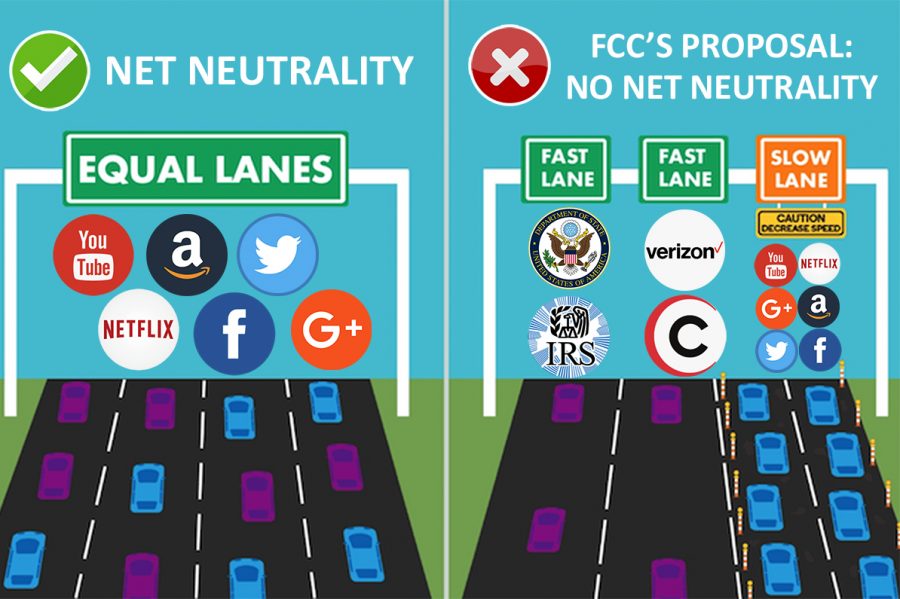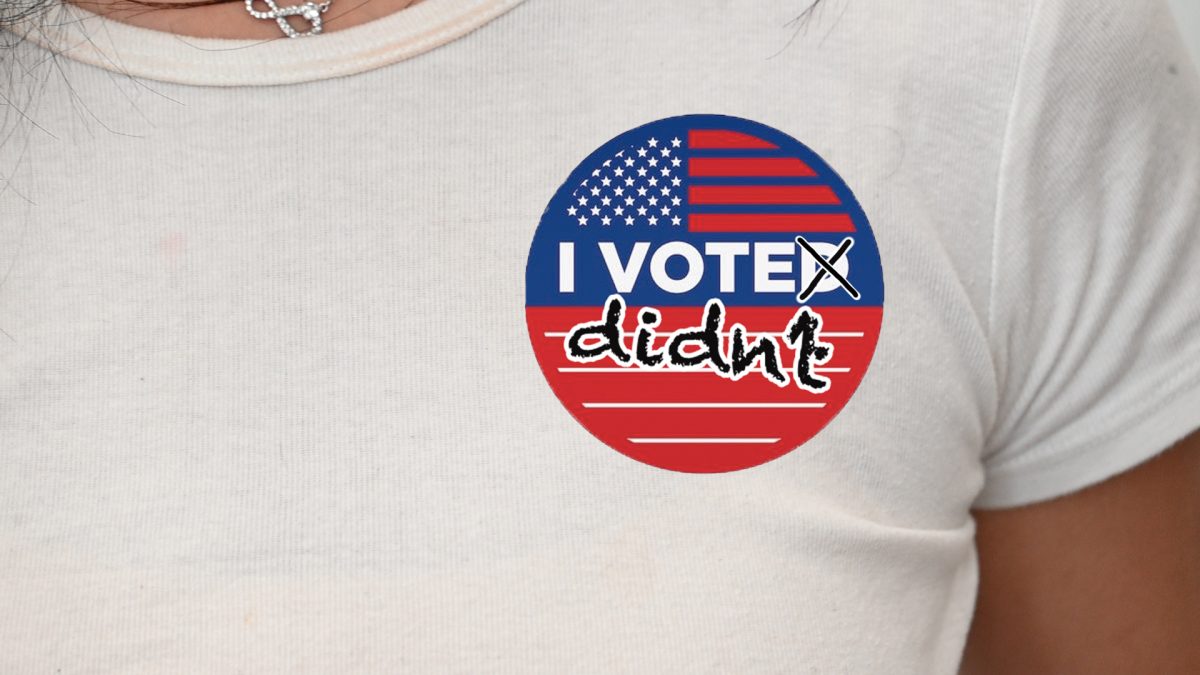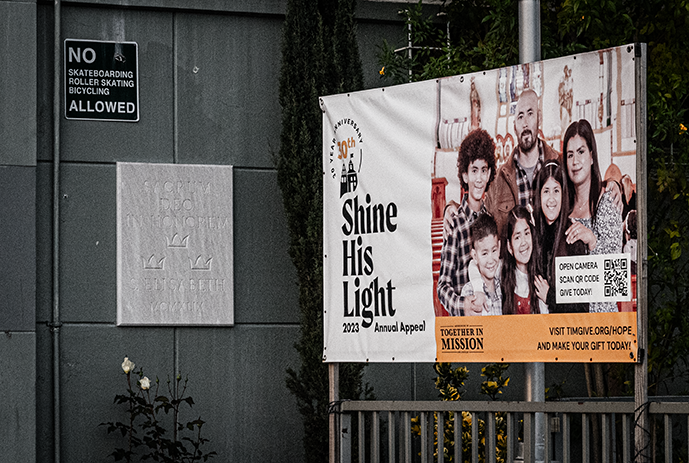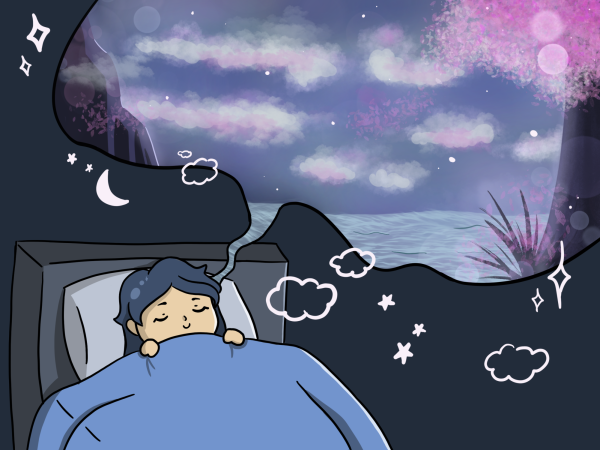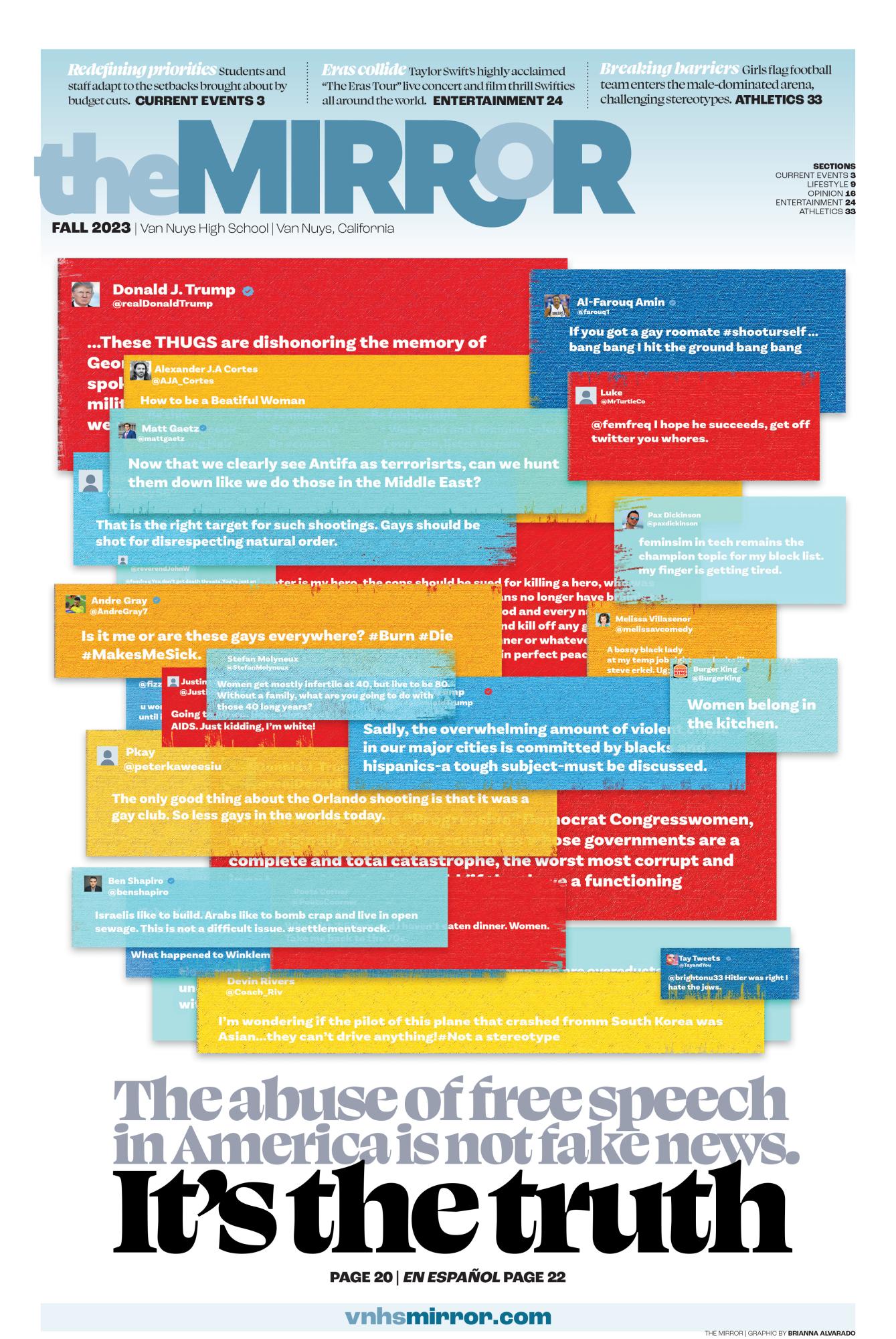The Battle Over Net Neutrality
A free and open internet is at risk. Service providers are poised to restrict millions of web users from accessing apps and sites to gain leaps in profit.
Feb 11, 2018
Imagine having to pay a fee to access certain websites, words loading at a letter per minute, and having internet service providers (ISPs) bar users from international news.
That is the future for internet users if the Federal Communications Commission (FCC) votes to eliminate net neutrality on Dec. 14, 2017.
The Trump Administration’s FCC Chairman Ajit Pai is pushing to scrap net neutrality, the principle that preserves people’s right to communicate freely online.
Net neutrality prohibits internet service providers like Verizon or AT&T from blocking content or applications they dislike. It creates a level playing field for all users, giving everyone equal access to websites and applications on the web.
Without net neutrality, companies can choose not to provide certain applications, block content or choose to substantially slow down a user’s access speed.
For millions of users who have only known an unrestricted internet, ending net neutrality might come as a major shock.
Analysts say it will cost consumers and businesses more money and reduce options.
Users and even school districts may end up paying out their noses for access to educational sites that were previously unrestricted if net neutrality is eliminated.
Sites like Khan Academy that teach subjects ranging from physics to art history are at risk of being suddenly inaccessible to students because users may have to pay to access worksheets and video tutorials. Sites that provide free online textbooks to low-income students also may be barred for those who cannot pay an extra fee to access them.
An open internet is also crucial for political groups and activists who use online platforms to create their movements and bring people from all over the world to fight for a common cause, especially if a politically-motivated company like Rupert Murdoch’s right-leaning Fox acquired a large service provider like AT&T.
Modern political movements gain momentum and communicate online. Movements like the Women’s March and Black Lives Matter rely on Twitter and Instagram to engage support from millions of people across the country.
Political campaigns are now fought primarily online. Political debates are streamed online, readily available for users who don’t have TV subscriptions.
Candidates reach out to young voters through the web, sending emails and creating websites that allow for everyone to have equal access to supporting their campaigns.
An open internet also allows for smaller businesses to create connections with their customers locally and globally. It allows for business owners to grow their businesses online where customers will be able to purchase their products on the web.
Doing away with net neutrality would seem to benefit only internet service providers, not the general public.
Companies like Google and Twitter have spoken up, weighing in on the side of open access.
In Portugal, where there is no net neutrality, service providers give consumers different packages they can pay for to access different services. Social media platforms are lumped together in one package, while music listening apps are put in another. To have access to a social media or music listening app, users must pay more.
According to Wired, although paid packages are not a likely situation, web users can expect to have subscriptions that give unlimited access to certain preferred providers while charging an extra fee for services by other providers.
Imagine only being able to access Verizon’s music service if you subscribe to Verizon, or the Dish Network website being blocked if you have AT&T because they own DirecTV—the competition.
The right-leaning FCC is expected to vote to eliminate net neutrality on Dec. 14. And with that vote, a future of unrestricted access to information hangs in the balance.
Ultimately, internet service providers are looking to gain millions of extra dollars in increased fees while eliminating competition from other services or applications. By eliminating competition from other providers, large ISPs stand at incredible financial advantages.
Users everywhere on large media platforms like Reddit, Instagram and Facebook have started petitions to stop the FCC from voting to block net neutrality. Web users everywhere are encouraged to contact their local Congressmen to vote against repealing net neutrality.
The battle for the net has only begun, and it is paramount that the free web stays protected.

